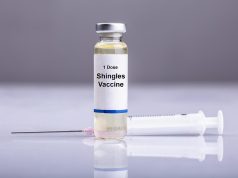Highest risk for dementia seen for individuals with APOE ε4 and highest PhenoAge accelerations, with significant interaction effect
By Elana Gotkine HealthDay Reporter
FRIDAY, May 2, 2025 (HealthDay News) — Advanced biological age (BA) may be a risk factor for incident dementia, according to a study published online April 30 in Neurology.
Yacong Bo, Ph.D., from The Third Affiliated Hospital of Zhengzhou University in China, and colleagues used data from the U.K. Biobank to examine the relationships of BA with incident dementia and explore underlying mechanisms. BA was evaluated using the Klemera-Doubal method biological age (KDM-BA) and PhenoAge algorithms. The apolipoprotein E (APOE) ε4 genotype and polygenic risk scores (PRSs) were used to assess the genetic risk for dementia.
The study included 280,918 participants. The researchers identified 4,770 cases of dementia recorded during a median follow-up of 13.58 years. Each standard deviation increase in KDM-BA and PhenoAge accelerations was associated with an increased incidence of dementia (hazard ratios, 1.14 and 1.15, respectively). The highest risk for dementia was seen for individuals with APOE ε4 and highest PhenoAge accelerations (hazard ratio, 4.20) compared with those with non-APOE ε4 and lowest PhenoAge accelerations, with a significant interaction effect. PRS did not have a significant modification effect on the association between BA accelerations and dementia, nor did APOE ε4 on the association between KDM-BA accelerations and dementia. The associations between BA accelerations and incident dementia were partially mediated by gray matter volume, cortical mean thickness, and cortical surface area, with the proportion-mediated percentage varying from 6.64 to 17.98 percent.
“Our findings suggested that advanced BA may contribute to changes in brain structures, thereby increasing susceptibility to dementia,” the authors write.
Copyright © 2025 HealthDay. All rights reserved.








